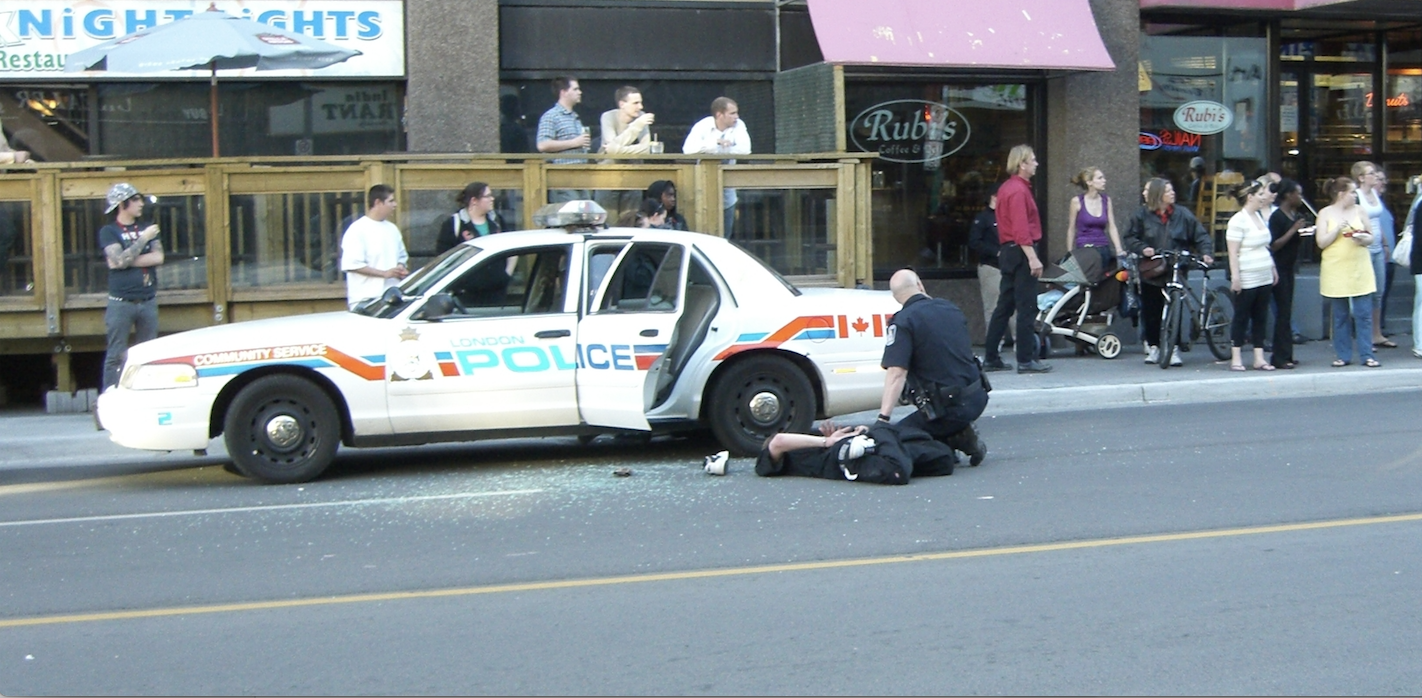In the second story in a series on prisoner rights and labour, rabble.ca looks at some of the barriers people face finding employment, and what can be done to help them secure work.
Ontario’s human rights laws could be changing to make it easier for people who have criminal records, or have had contact with the police, to find jobs.
Bill 164, The Human Rights Code Amendment Act, passed second reading in October. It has been referred to committee. If passed, it would make discrimination in employment because of someone’s police records illegal.
Right now, the Ontario Human Rights Code forbids discrimination in employment because of a conviction that has been suspended, previously known as pardoned, or a provincial offence, like traffic violations. The changes would expand the definition to include any charges or convictions, with or without suspensions, and any police records, including records of non-criminal contact with the police.
The bill would also add immigration status, genetic characteristics and social condition to the list of prohibited grounds.
Advocates have wanted the government to expand the definition of criminal records in the code for years. The John Howard Society of Ontario made this recommendation in 2014.
The law’s current narrow definition creates a “significant gap,” said Graham Brown, policy analyst at the John Howard Society of Ontario. Many legally innocent people still have records of police contact that could show up in record checks and may prevent them from getting jobs. This could include charges that have been dropped or records of interactions with the police, including 911 calls. The information in these records could be extremely sensitive, especially if an individual called the police when they were in mental distress or considering suicide.
Databases could also include information gathered during carding incidents, said Brown. Each local police force manages its own database and decides what is logged into them. Research indicates that people from racialized or other marginalized communities who have criminal or police records have an even harder time finding jobs, he said.
“With regards to employment, a record doesn’t really tell you a lot about an individual,” said Brown. The stigma of having a record creates means, “for some people, that’s all the employer will see. People with criminal justice involvement are perhaps one of the most excluded, identifiable populations from the labour market.”
It is absurd that, legally, innocent people don’t have much protection, said Brown.
“People get caught up in the criminal justice system for all sorts of reasons,” said Rob De Luca, director of public safety programs at the Canadian Civil Liberties Association.
People often assume that if someone has a police record, they’ve committed a criminal offence, De Luca said, noting the association often hears from people who struggle to find work because of their police record.
“Ability to find employment is crucial to our dignity,” he said, adding that many people who have police or criminal records may feel like they’re being treated as lesser citizens when their records keep them looking for work.
If passed, the changes would bring Ontario’s Human Rights Code in line with human rights legislation in other provinces and the territories. British Columbia, Quebec, Prince Edward Island and Newfoundland and Labrador prohibit discrimination in employment if criminal records aren’t related to the job. All three territories prohibit discrimination due to criminal records in all areas. Yukon’s Human Rights Act specifies the charge has to be unrelated to the job someone’s seeking.
Some provincial human rights laws don’t have any protection against discrimination based on a criminal record. It’s not included as a prohibited ground for discrimination in Alberta, Saskatchewan, New Brunswick or Nova Scotia. It isn’t listed in Manitoba’s Human Rights Code either. The province’s human rights commission will accept complaints alleging discrimination because of a criminal record, though.
While advocates say these proposed changes will strengthen legal protection for Ontarians who’ve had contact with police, they’re concerned the government has not implemented a law that would standardize criminal record checks across the province.
Bill 113, The Police Record Checks Reform Act, was passed in 2015. The law standardizes what information is included on criminal checks throughout the province, gives individuals a chance to review their record before it is released and lets them request that certain information not be disclosed, and that non-criminal information on a record check won’t be disclosed.
Right now, there’s no standard for what appears on a criminal record check across the province. Some police forces use voluntary guidelines, called the LEARN guidelines, to determine what is disclosed in a check and how.
The law hasn’t been put into force yet. Regulations still need to be developed, said De Luca. He called the delay disappointing. “Two years is much longer than what would have been expected,” he said, adding he’d like to see progress on this before Ontario’s 2018 election.
Meagan Gillmore is rabble.ca‘s labour reporter.
Like this article? rabble is reader-supported journalism.





